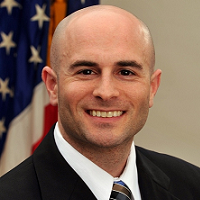 By Steven Posnack, M.S., M.H.S. Deputy National Coordinator for Health Information Technology
By Steven Posnack, M.S., M.H.S. Deputy National Coordinator for Health Information Technology
Twitter: @ONC_HealthIT
Steven’s Twitter: @HealthIT_Policy
One of the fun parts about working at the Office of the National Coordinator for Health Information Technology (ONC) is that in addition to our impactful, near-term work, we also have the chance to point our eyes to the horizon and envision a better future. Throughout my tenure at ONC, different policy, technology, and legislative moments along with ample public feedback have shaped our actions. Yet, there always comes a time to ask, “what’s next? what are we driving toward? how do we turn actions into outcomes?” Now’s that time.
The early days were informed by Executive Order 13335 from 2004 and the American Health Information Community (ONC’s first advisory committee) along with its four “breakthrough” areas (i.e., bio-surveillance, consumer empowerment, chronic care, and electronic health records). A few years later, the Health Information Technology for Economic and Clinical Health Act (HITECH Act) of 2009, the HIT Policy and HIT Standards Committees, the 2011-2015 Federal Health IT Strategic Plan, and, yes, a bunch of rulemaking guided our work. Then, in quick succession, came the Interoperability Roadmap, the 2015-2020 Federal Health IT Strategic Plan, and the 21st Century Cures Act (Cures Act) of 2016, which has been the driving force behind ONC’s work over these last five years.
As we emerge from the COVID-19 pandemic, it is without question that the Cures Act will continue to play a distinct role in our work. However, we also find ourselves at the start of a new decade with a remarkable opportunity to look ahead. To that end, ONC has launched a new project called “Health Interoperability Outcomes 2030.” Later this fall, reflective of public feedback, we intend to publish a prioritized set of interoperability outcomes that align with ONC’s interoperability vision for the nation and the 2020-2025 Federal Health IT Strategic Plan. Over the next few months, we’re looking for your take on aspirational and achievable “health interoperability outcome statements.” Your perspectives will help shape our thinking and what we, as a nation, seek to achieve this decade.
Before anyone gets snarky about “having to wait until 2030” to reach certain outcomes, we view any of the potential outcomes as having a “no later than” timing to them. In other words, some outcomes could and would be expected to be achieved well before 2030. That being said, anyone who’s worked in this space knows that health care is full of humility. Often, what you think should be easy takes longer and is more complex than you expected. It turns out those policy issues have interdependent technology issues (and vice versa) and those workflow issues are intertwined with economic issues, and frequently it’s some combination or all of the above. Equally, sometimes actions can happen in parallel while others require incremental, serial steps to make progress and gain momentum.
When we know with certainty what we want to accomplish, what outcomes we seek to achieve, it frees us up to be a bit more creative about how we get there. That’s what this effort is all about. Put simply, we’re looking for you to complete the following “fill in the blank” with your best formulation of a health interoperability outcome – think of it like an interoperability Mad Lib. Below are two alternative framings to get you going, but you can come up with your own variation as well. Keep in mind that a well framed interoperability outcome will be stated concretely with a reasonably intuitive way to measure progress and/or whether the outcome has been reached by 2030.
“Because of interoperability, ______ before/by 2030.”
“Because of interoperability, before/by 2030 [who] will [what].”
For example, because of interoperability, faxes are no longer used in clinical care before/by 2030. As another example, because of interoperability, before/by 2030 everyone that is part of a care team will have accurate, up-to-date clinical information prior to providing care.
Now it’s your turn. Here’s how you can participate: go to HealthIT.gov/HealthInterop2030 or chat us up on Twitter @ONC_HealthIT with #HealthInterop2030 to send your response. Submissions will be accepted through July 30, 2021. Throughout the response period we’ll be organizing and synthesizing input consistent with our plan to publish a prioritized set of interoperability outcome statements later this fall. Ultimately, this effort will help coordinate and focus our collective actions toward outcomes.
This post was originally published on the Health IT Buzz and is syndicated here with permission.
